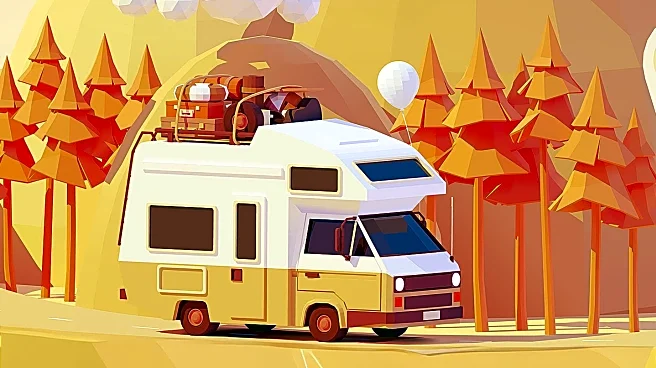What's Happening?
A 26-year-old woman, known as Daniel on TikTok, has gained significant attention after transforming a school bus into a mobile studio apartment to live rent-free. Documenting her three-year journey on TikTok, Daniel's video has amassed 21 million views. The project was driven by her desire to avoid the financial burden of rent, inspired by her mother's struggles with housing costs. Daniel purchased the bus for $5,500 and spent between $25,000 and $35,000 on the conversion, which includes a full-sized bed, a pullout couch, a toilet, and a shower. The renovation was largely a solo effort, with some assistance from a contractor for complex tasks like plumbing and electricity.
Why It's Important?
This story highlights the growing trend of alternative living solutions among younger generations facing high housing costs. With about half of U.S. renter households being cost-burdened, Daniel's project underscores the financial pressures many face. Her innovative approach offers a glimpse into how individuals are adapting to economic challenges by embracing minimalism and self-sufficiency. The viral response to her TikTok video reflects a broader societal interest in sustainable and affordable living options, potentially influencing future housing trends and policies.
What's Next?
Daniel's success may inspire others to explore similar housing alternatives, potentially leading to increased interest in mobile and tiny home living. As housing costs continue to rise, more individuals might consider unconventional solutions to achieve financial independence. This trend could prompt discussions among policymakers and urban planners about supporting diverse housing options and addressing affordability issues.
Beyond the Headlines
Daniel's project also touches on cultural shifts towards sustainability and minimalism. By choosing a mobile lifestyle, she reduces her environmental footprint and embraces a more energy-efficient way of living. This aligns with a growing movement among younger generations to prioritize experiences and environmental responsibility over traditional material possessions.









